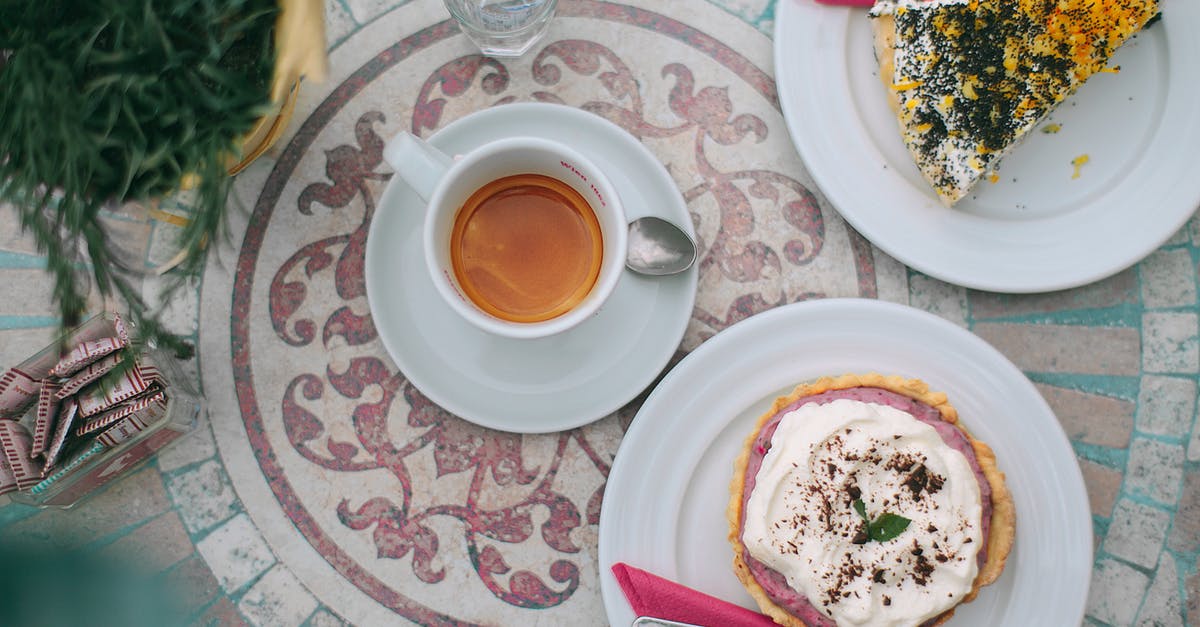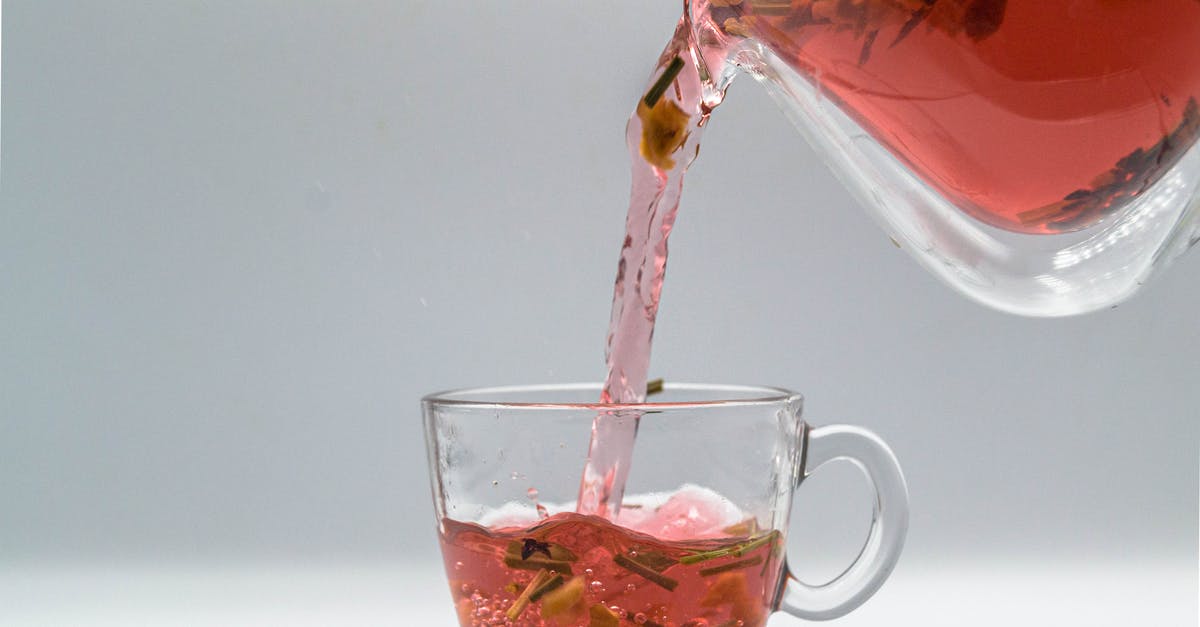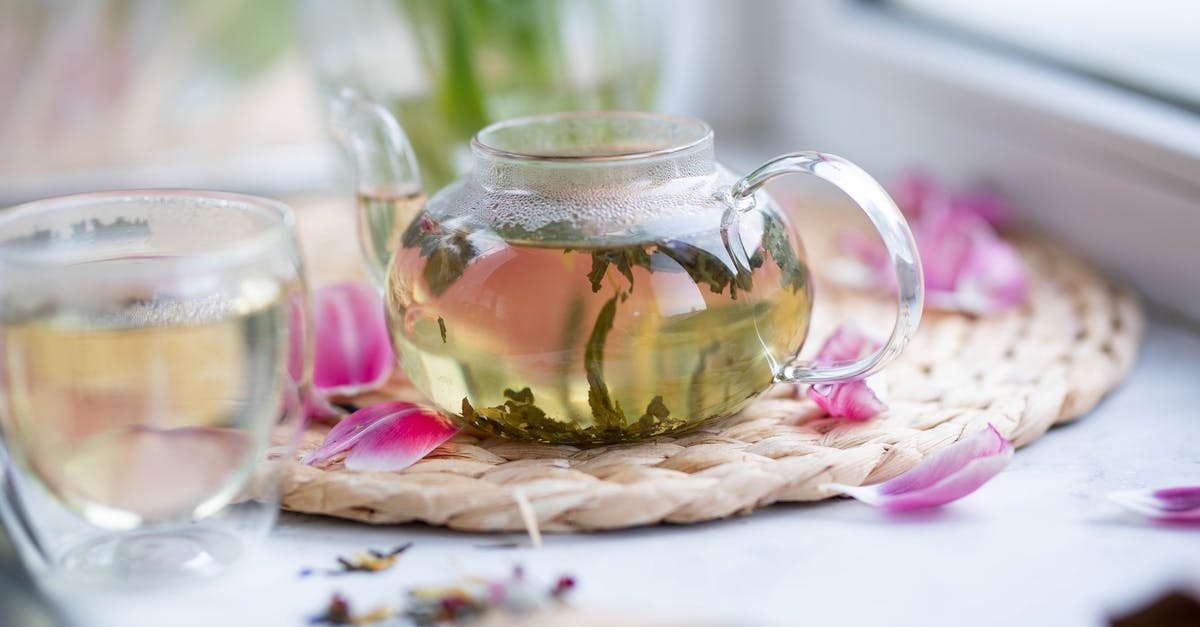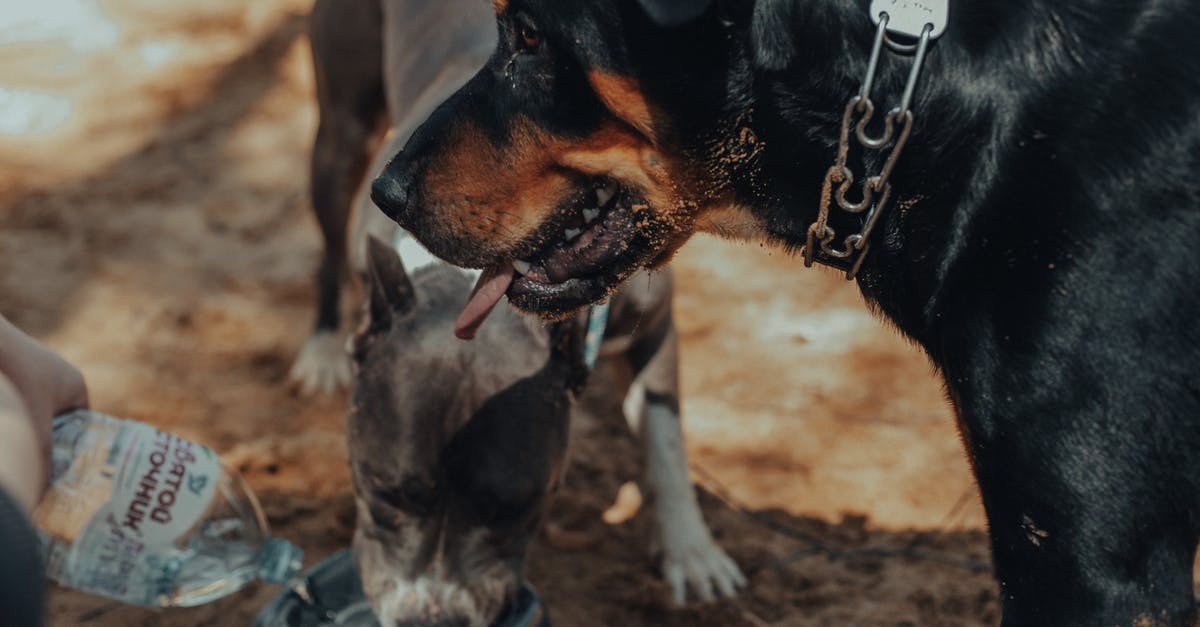Hot water vs warm water for hot chocolate

First off, I don't normally do hot drinks. I don't like coffee or tea, and I only drink hot chocolate/cocoa or hot cider on occasion, so I really don't know what could make a difference in the flavor of using really hot or boiling water to make hot chocolate versus using hot tap water. Also, I don't like really hot drinks. I always let them cool down to what coffee drinkers think of as warm, luke-warm, or tepid. In fact hot tap water is usually hot enough for me and, unless it's unusually hot tap water, it's comfortable for me to drink right away.
So my question: is there something that really hot water does to a hot chocolate powder mix that makes it taste better than warm water? I've used the same powder mixes in hot water as well as warm water, and the hot water cooled down almost always tastes better than warm water, regardless of brand or style of mix. I find the warm water often tastes a bit bitter, if that's even the right description of the flavor difference. I know it just tastes a bit "off". I think I notice it more if there's a "marshmallow" flavoring involved, if that makes any difference.
Does the really hot water melt the chocolate and the warm water not? Is there a chemical reaction the warm water is not activating? Is it the length of time being hot a factor? Is it that my taste buds need to "re-calibrate" for hot liquids?
FYI, I'm aware of How to make Instant Hot Chocolate Taste Less Watery and Does Boiling Water, Instead of Warm Water, Hurt the Flavor of Tea/Hot Chocolate. The first one might be the be my real answer, in that I'm not adding enough mix to get the flavor I'm looking for, but I'm not 100% convinced on this. I put enough mix in that it settles over a short time, so I think I'm adding enough. The 2nd question has answers that just barely touch on hot chocolate, but to no real definitive solution, since they are geared almost 100% towards tea and coffee.
Edit (for a little more clarity):
The reason for this question was that I had just used a K-cup in hot tap water, since I didn't realize my job didn't have a Keurig when I bought the cups. (I thought they did, but was wrong.) I've used other brands of K-cups as well as pouches with the same results. Using a Keurig, I end up adding tap water or even ice to be able to drink it within 5 min of brewing.
I believe I've only purchased or used instant mixes, rather than mixes that require simmering/steeping or need milk rather than water.
Best Answer
There are two good reasons to use boiling water in hot chocoolate.
The first reason is that boiling water helps drive off chlorine which is added to the water supply. This won't work with some chlorine treatment, and of course isn't necessary with bottled or other unchlorinated water, but for standard free-chlorine treatment it can make a big difference. As a rule of thumb, if your boiling water has a distinct (possibly pool-like) smell, it's from the chlorine. (The smell is the chlorine leaving the water. It's still there in unboiled water, but more evident through taste than through smell.)
The second is that cocoa powder may need to be "bloomed" to fully release its flavor. Cocoa powder is a very fine powder, but it's still tiny bits of dried plant matter. Boiling water hydrates these particles much better than hot water, allowing flavor components to disperse into the mixture. The importance of this method varies with the type of cocoa powder you use, and from my anecdotal experience is not as important with European cocoa as it is with North American cocoa.) Failing to do this won't directly lead to bitterness, but the underextracted flavor may make bitterness in the drink more directly evident.
As an experiment, I suggest that you try making "cold chocolate" both ways. Use boiling water as normal, and refrigerate the result to refrigerator temperature. In a separate mug, try making it with cold water. (Add the cold water a bit at a time while stirring, and make sure to scrape the sides thoroughly as you add it; it will not be as easy to mix everything up as it is with hot water. If you end up with a bunch of bubbly, granular mud floating on water, toss it out and try again.) The difference between the two will be evident, and should help you pin down the difference between warm and boiling water.
Pictures about "Hot water vs warm water for hot chocolate"



Quick Answer about "Hot water vs warm water for hot chocolate"
Boiling water hydrates these particles much better than hot water, allowing flavor components to disperse into the mixture. The importance of this method varies with the type of cocoa powder you use, and from my anecdotal experience is not as important with European cocoa as it is with North American cocoa.)Do you use hot water for hot chocolate?
Use unflavored or vanilla soy milk. Believe it or not, you can also use water instead of milk. Water allows the chocolate to show off its true flavors and unique characteristics, however you lose the creamy feel and flavor.Do you use cold or hot water for chocolate?
Rinse With Cold Water It's tempting to use hot or warm water, but this may set the stain. Chocolate also has an oil-based stain component, so using cold water may seem counter-productive, but you are just trying to remove as much of the stain as possible without setting it permanently.How hot should the water be for hot chocolate?
Hot beverages such as tea, hot chocolate, and coffee are frequently served at temperatures between 160 degrees F (71.1 degrees C) and 185 degrees F (85 degrees C).Milk vs Water in Hot Chocolate • 8.25.21
More answers regarding hot water vs warm water for hot chocolate
Answer 2
Is there a possibility that you are not using an instant chocolate drink mixture, but a drink mixture made with cocoa powder, or even pure cocoa powder? If that's the case, then you have to heat it to 95+ Celsius in order to cook the starch in the cocoa powder. Else it will taste undercooked.
If it is in fact an instant drink mixture, it is very difficult to guess why it tastes worse, since nobody beside the producer has experience with the exact recipe. But in this case, it is quite possible that you will get a different result if you switch brands, because a different brand will be made in a different way and may not have the same side effects when being made in an off-label way (with tepid water). Even better, you might be able to find mixtures meant for cold drinks - tepid chocolate is a rare thing, but iced chocolate exists, and maybe you can find instant powders engineered for that use case.
Sources: Stack Exchange - This article follows the attribution requirements of Stack Exchange and is licensed under CC BY-SA 3.0.
Images: Maria Orlova, itschansy, Valeria Boltneva, Vova Krasilnikov
